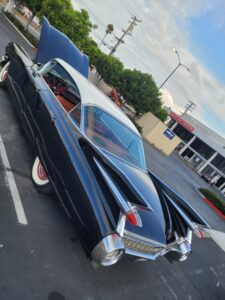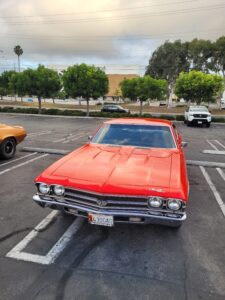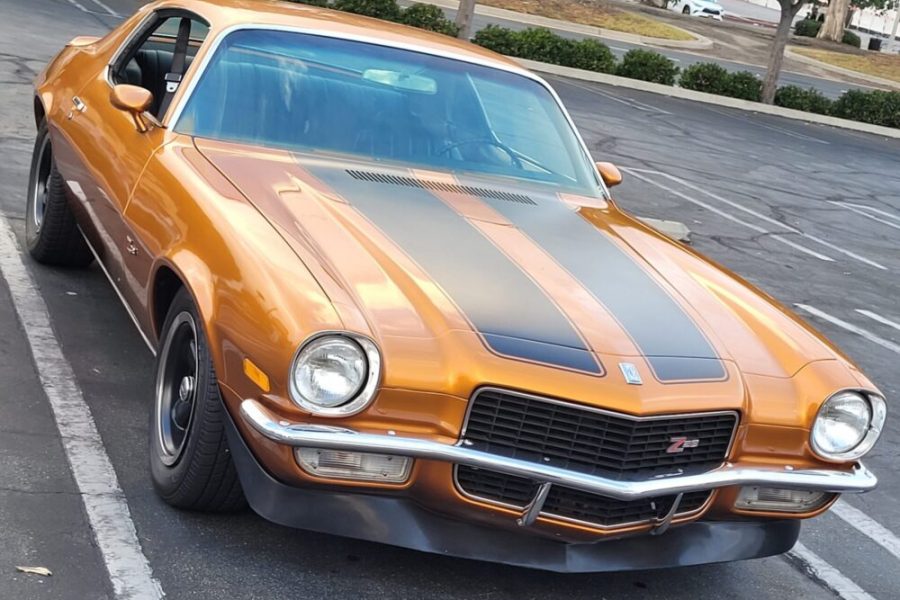California, according to the Capitol Museum in Sacramento, “is the world’s first auto-civilization.” A PBS affiliate says “as an innovator and early adopter of freeways, California became the symbolic capital of car culture.” Just five years ago, Jalopnik reported that “California is one of the hottest beds of car culture in the world.” Hot Wheels, without question the coolest scale-model cars ever, are made by Mattel, a company fittingly born in a Los Angeles garage. Many of their designs were inspired by California’s custom car culture.

The dry and temperate climate in most of California makes it one of the best places in the world for cars to grow old. The mild weather is easy on automobiles, and driving conditions are ideal throughout the year.
Yet Hagerty, the world’s largest insurer of classic vehicles, ranks California 49th in classic-car friendliness, due to an adversarial regulatory framework of special registrations, emissions and title requirements, and a steep tax on sales.
“California is generally a classic car exporter rather than importer, solely because of the smog regulations” on automobiles that are driven only occasionally, says Hagerty.
Don’t be surprised if those exports rise in the coming years. Sacramento might be opening a new front in its war on cars, this one aimed at the classics.
According to the Daily Caller, owners of model year 1978 and older automobiles received in early August from the California Air Resources Board a survey “seeking information from respondents about tendencies they have while using the classic vehicles, including the county in which they are primarily driven.” It followed a 2019 CARB draft report that “suggests that the state should ‘provide explicit authority to local jurisdictions to create zero-emission zones’ in order to combat climate change.” Owners were expected to provide to the government their odometer readings, the distances they drive each year, as well as their frequency of travel.
This has produced speculation that CARB is preparing to impose driving restrictions on older cars.
When several classic car owners who gather early every Saturday morning at a strip mall parking lot in Torrance were recently asked if they had received the survey, all said they hadn’t. A regular said a friend had been sent one, but rather than fill it out, he threw it away. All expressed skepticism regarding CARB’s motives when they learned of the survey, and while only one said “I love my country but I don’t trust the government,” it was clear that was the prevailing attitude among the owners.
In any event, it’s still not clear what CARB hopes to achieve with the survey. Hemmings Motor News posted an article in late September in which it said “the concern and accompanying uproar” –

including “outspoken concerns regarding the possibility of authorities going door-to-door to seize and destroy classic cars” – “seems to be largely unfounded speculation.”
The unelected board “told Hemmings the classic car usage survey and similar surveys are ‘simply routine data updates’ to ensure their overall vehicle fleet data is accurate, and that it has ‘nothing to do with vehicle ‘bans.’”
Maybe so. But is there any reason at this point to trust government when it tries to quash speculation about its regulatory targets? We’ve seen the misdirections before. Recall when Washington and the media assured us, even after Consumer Product Safety Commissioner Richard Trumka Jr. earlier this year floated the idea of “banning gas stoves entirely” that, no, “the federal government isn’t going to take away your gas stove”? It was treated by both the administration and media as just another batty right-wing conspiracy theory.
Yet within months campaigns to ban gas stoves had taken off across the country, and by June the U.S. House had passed the Save Our Gas Stoves Act, which bars the U.S. Energy Department of Energy “from implementing a proposed rule that would impose intrusive and costly standards on the kitchen stovetops of millions of Americans.”
Given the precedents of political and bureaucratic deception, and California’s ongoing war on the automobile, classic car enthusiasts have every reason to be concerned. Though they’re unlikely to have their vehicles seized and destroyed, it’s not crazy to believe that regulators would put mileage or time-driven restrictions on their cars. Nothing is off limits in this state’s mad scramble toward net zero.
Kerry Jackson is a fellow with the Center for California Reform at the Pacific Research Institute.


